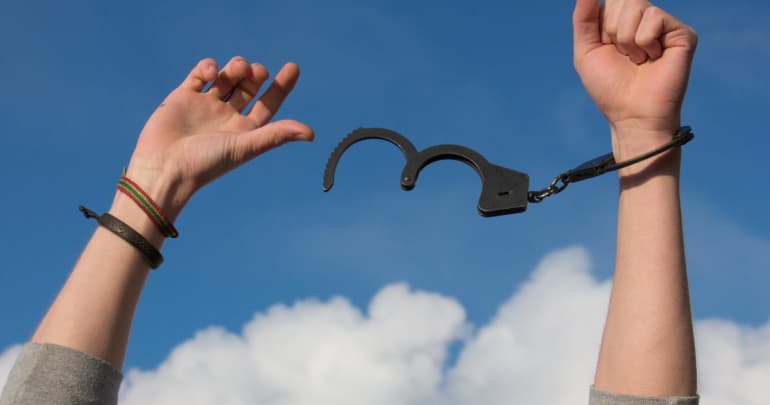You may have been prescribed opioids because you were in an accident or had an injury that required the treatment of painkillers. No one expects to develop an addiction when all they are trying to do is treat their pain and suffering. However, there is always hope in opioid addiction treatment to take back control of your life.
Opioid Addiction
You know that you are addicted to opioids if certain areas of the brain are changing, such as mood and reward behavior. Opioid addiction is also apparent if you experience withdrawal symptoms when you cut off your opioid supply completely. Opioid withdrawal symptoms include:
- Drug cravings
- Stomach pain
- Chills
- Body aches
- Nausea and vomiting
- Diarrhea
- Agitation and bad moods
Opioid withdrawal can last for days or weeks. Because of how unpleasant these withdrawal symptoms are, you may do anything to avoid them from happening. However, instead of healing your pain with more drugs, you can find healthy ways to manage your addiction that will lead to beneficial results for years to come.

Case management is an essential aspect of the recovery process from substance use disorder. Learn more about case management!
More infoMotivational Interviewing
Motivation is the key to wanting to treat opioid addiction. You need to have reasons to want to quit doing drugs. Otherwise, you will be at a high risk of relapsing or suffering a fatal overdose. Motivational interviewing can help you prepare to quit opioids before you try to quit yourself. When you speak to a facilitator, you determine your reasons for why sobriety is important to you. You will feel empowered knowing that you are the one making changes in your life instead of your therapist making those changes for you. Feeling responsible for your actions will build your self-confidence in recovery.
Family Therapy
When one person in the family suffers from addiction, the entire family suffers. Some individuals feel like they need to stop what they are doing to keep an eye on you, which leaves others neglected. Family therapy is centered not only on the person suffering from addiction but also on how addiction has affected everyone involved.
If you hear how your addiction has emotionally affected your loved ones, you will be motivated to change your behavior to prevent more pain from occurring. Family therapy can also teach your family members how best to support you in your recovery and prevent any difficulties that can cause you to relapse. You will all work as a team for your dreams of recovery to turn into a reality.
Cognitive-Behavioral Therapy
One of the reasons addiction can go on for so long is because of the negative thoughts that may consume your thinking. Luckily, cognitive-behavioral therapy (CBT) can change your negative thoughts into positive ones. For example, if you have self-hating thoughts, a therapist can teach you that it is not yourself you hate but your situation. You will have a greater understanding of why you are abusing opioids and that you can address your problems with healthy methods of coping. This therapy is also good for addressing any mental health disorders you have in addition to addiction.

Recovery from substance use disorder (SUD) is always possible. Learn more about how our dialectical behavior therapy (DBT) in Hawaii can help by talking to a professional at Hawaii Island Recovery.
More info12-Step Fellowships
Opioid addiction can make you feel all alone in your struggles. However, 12-Step fellowships like Alcoholics Anonymous or Narcotics Anonymous can give you a private and safe space to listen to the stories of others in your shoes and a chance to share yourself. You will learn about viewing addiction as a disease and surrendering yourself to a Higher Power.
By incorporating each of the Twelve Steps into your daily life, you are practicing abstinence and attempting to fix the relationships that were hurt by your addiction. These meetings are free to attend and are scheduled regularly. You can also use these meetings as an opportunity to find a sponsor who you can talk to for support in your recovery, including whenever you feel you might relapse.
Medication Management
Medically assisted treatment can introduce you to medications that can help you fight off opioid cravings. For example, there is buprenorphine that blocks opioid receptors in the brain, preventing withdrawal symptoms. Methadone can change the effects of pain on the nervous system. Naltrexone completely blocks opioid receptors and the high opioid users experience.
How to Dispose of Opioids
You may not want to get rid of opioids you already have as you may not want them to go to waste. However, keeping them around can make you tempted to relapse. Once you are in treatment, you may be wondering what to do with all of your opioids. First, remove the label with your name and other personal information. Next, find a trash or recycling program around your area — such as at a police station — where you can drop off opioids. See if your pharmacy or health care clinic has an opioid medication disposal program.
Inpatient treatment centers like Hawaii Island Recovery can provide you with everything you need for a successful recovery. Opioid addiction may not have been in your control, but how you treat it always will be. By picking up the phone and calling Hawaii Island Recovery, you will get the control you have always wanted.
Opioid addiction can occur after being on painkillers for a serious injury or disease. Before you know it, opioids may be the only thing on your mind as you prioritize finding ways to acquire more of them. Opioid addiction can ruin aspects of your life that you have cherished and worked hard for. Here, at Hawaii Island Recovery, one of the leading drug rehab programs in Hawaii, we understand what a struggle opioid addiction is, and we are here to help you recover. We have various resources to help you on your journey to recovery. Located in Kailua, Hawaii, we can provide you with individual and group therapy, cognitive-behavioral therapy, medically assisted treatment, and more. Our addiction specialists are more than capable of handling any challenge that may come up and are prepared to answer any questions you have. Call us today at (866) 390-5070 for more information about our many services.
Get Addiction Help!
If you or a loved one need help, call Hawaii Island Recovery toll-free right now.
866-390-5070 Hawaii Island Recovery
Hawaii Island Recovery 










